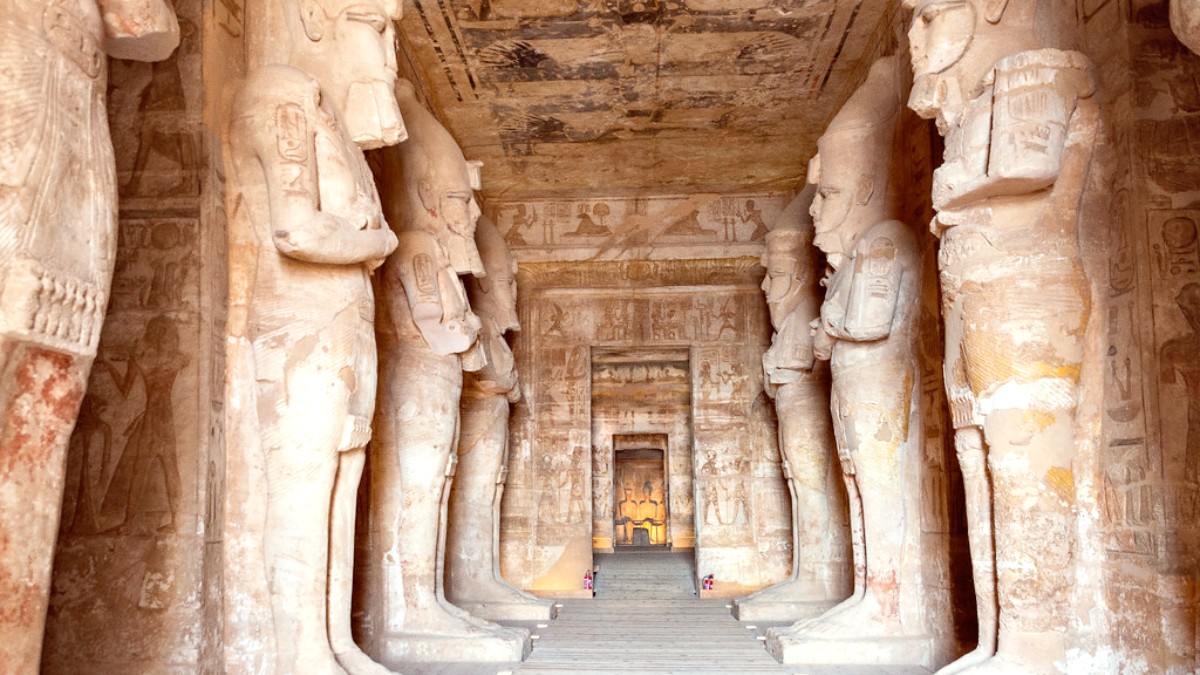
Egypt
The Abu Simbel Temples are part of the Nubian Monuments World Heritage Site, designated by UNESCO. This status frames the management and preservation of these historical treasures.
Lake Nasser and the surrounding desert areas possess unique ecosystems vulnerable to pollution and disruption. While not a formal nature reserve, the lake environment undergoes monitoring.
Conservation efforts protect the temples from environmental degradation and tourist impact. This effort saved a piece of humanity's shared heritage.
Responsible travel minimizes negative impacts and supports local sustainability.
Waste management infrastructure in Egypt continues development. Recycling lacks widespread presence, notably outside of major cities and some higher-end hotels.
Egypt, a water-scarce country, relies almost entirely on the Nile River for fresh water. Lake Nasser is a vast amount of water, a strategic resource.
Purchasing carbon offsets for flights to and from Egypt is an option.
Research hotels or Nile cruises with environmental certifications or those explicitly stating sustainable practices.
Treat ancient sites with the reverence they deserve. Do not touch reliefs, climb on structures, or deface monuments.
Adhere to all rules regarding photography, restricted areas, and behavior at the temples for their longevity.
Responsible choices help preserve Egypt's natural beauty and cultural heritage. Consider offsetting your carbon footprint through Terrapass and packing reusable items from Package Free Shop.
Interactions respectful, leaving a positive impression.
Modest dress makes a sign of respect for Egyptian culture. Engage respectfully in souks and markets; bargaining is an expected cultural exchange.
Prioritize Respect and Consent: Your camera can intrude. Always prioritize the comfort and privacy of locals over getting a perfect shot.
Egypt holds conservative society status. Women may experience unwanted attention like catcalling or persistent vendors.
Homosexuality is not illegal, but public displays of affection by same-sex couples are generally not tolerated and cause social or legal issues.
Responsible tourism sees travel benefit local communities and support ethical practices.
Staying in local Nubian guesthouses directly supports the local economy and families.
Seek shops that state fair trade practices or directly support local artisans for fair wages. Bargain fairly; a fair price supports livelihoods.
Eat at local restaurants and street food stalls. Buy souvenirs from independent vendors. Use local transportation like feluccas run by local boatmen.